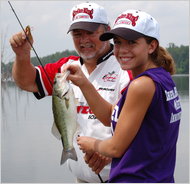 If I had the option to press the “reset” button that would send me back to freshman year with the knowledge that I have now about college, I would go back in a heartbeat. Needless to say, there are plenty of things I wish I knew before my freshman year of college commenced. Here are a few key ones:
If I had the option to press the “reset” button that would send me back to freshman year with the knowledge that I have now about college, I would go back in a heartbeat. Needless to say, there are plenty of things I wish I knew before my freshman year of college commenced. Here are a few key ones:
I wish I knew what “time management” meant.
When I was a senior in high school, all the teachers and recent graduates would tell us that it was imperative that we understood how to manage our time; as in how to balance our social lives with our academics. I didn’t understand what they meant. It was easy enough to hang out with friends and get A’s and B’s in high school, How hard could it be in college? Hard.
Hard if you don’t find some sort of balance. It’s easy to get caught up in the social aspect of college. There are a ton of people to meet, tons of places to go, a whole bunch of activities that you can do every single day. Best thing of all is no parents. So what tends to happen is that a lot of college kids experience full “freedom” and forget that they have classes. I know I did my freshman year. I chose to go out and hang with my new friends instead of studying for an exam that week or I waited till the day before an assignment was due to start it.
Finding a balance takes time and depends on the person. It took me till the end of my sophomore year to finally figure out some sort of balance. I found that using iCal on my Mac and planning out when every single exam, project and assignment was due really helped me know when important things were coming up so I could focus on my work and hang out later. My GPA also helped motivate me because I didn’t want to be put on academic probation. Sometimes an academic kick in the butt can motivate a student to focus on their schoolwork. But you don’t want to slide that far down before changing your ways because if your GPA is low after the first year, it’s hard to bring it back up.
I wish I sampled different classes in the beginning.
I wish I had taken more random classes my first year instead of taking four science classes, one math class, and one English class. I entered Virginia Tech as a biology major and dove right into the science classes, only to find out that I hated labs halfway through the semester. Unfortunately I was caught in a bind because it was too late to drop the classes and I didn’t want to waste my withdrawal credits in the first semester. I was miserable that semester.
What I should have done was taken one science class and branched out and tried out different classes to see what I liked. I know a friend of mine was a journalism major and took an Intro to Film class during her sophomore year. She loved it so much, she changed her major to Film; based on that one single class. That happened to me as well! After my first semester, I ended up dropping my biology major, switching to undecided, then changing to Communications after taking an Intro to Communication Theory class at the end of my freshman year. Pretty big switch, but sometimes one class can do that. I encourage more college students to sample out different classes when they can. You never know what other passions you may have.
I wish I knew that there are plenty of ways to have fun without drinking.
I partied a lot during my first two years of college. Not only did it hurt my grades, but it also got me in trouble. I wish when I entered college I understood the hazards of drinking and that I could have plenty of fun without drinking. Besides the fact that underage drinking is illegal, another problem with drinking in college is that a lot of students don’t understand their limit. They’ll just keep drinking and drinking and go overboard. Some may find it funny to tell their friends how wasted they were or laugh about blacking out, but in all seriousness it’s no laughing matter. I went overboard during the start of my sophomore year and paid the consequences by being put on deferred suspension. Since that ordeal, I’ve pushed myself to limit my drinking and a lot of times I’ll opt not to drink at all. Ironically, some of the best times I had were the ones where I chose to remain sober and remember all the crazy things that happened when other people were drunk.
Some students may think that the only way to have fun is to go out, party and drink, which is not true at all. For one thing, you can always go out to a party and not drink and still have a fun time. You can also check out some of the facilities that your college provides for other forms of entertainment. Here at Tech there are plenty of ways to have fun without the need of alcohol. There’s a place on campus called the BreakZone that offers a variety of games like pool, bowling and darts. Instead of going out and drinking, sometimes I’d gather a group of friends and we’d play a couple games at the BreakZone. If bowling or pool isn’t your thing, why not organize a video game session or watch movies? There are plenty of chances to go out and party; sometimes staying in and enjoying your surroundings can be a refreshing experience.
I wish I got out of the room more.
The dorm is a great place to meet people from all sorts of places, and it’s possibly the first place where you develop some of your closets friends throughout your college career. While meeting people in your dorm and hanging out in the dorm is nice and all, don’t forget that there exists a world outside of your dorm! I spent way too much time in my dorm, whether it was in my room or in my friend’s room. I chose to stay indoors on nice days rather than go outside and enjoy my surroundings. The one thing I love about Tech is that its campus is pretty big and there are tons of areas to explore. I remember one of my architecture friends gave me a tour of the architecture studio that was located underground. It was an eye opening experience to say the least and I knew that there was a studio somewhere on campus, but never took the time to go out and look for it on my own. After that trip I started to go out more and walk around campus the weather was nice. I figured I might as well enjoy campus while I’m still here.
I encourage students to get out of their dorms during a beautiful day and walk around their campus; after all, college only lasts for so long and who knows when your next visit will be once you graduate. Enjoy your environment and surroundings, and don’t be afraid to go out and explore! Who knows what you’ll discover!
*****
This is a guest blog post by Tauhid Chappell, a junior at Virginia Tech majoring in Electronic/Print Journalism. He is the executive editor of Planet Blacksburg; a student-run, online, media organization at Tech. He aspires to be a multimedia journalist and is addicted to social media!
 One of my sidelines every year is preparing Red Ribbon Week support materials for the public schools. While it’s rewarding knowing that I can do a small part to contribute to drug awareness education, it’s also a bit depressing to read the statistics related to drug and alcohol abuse.
One of my sidelines every year is preparing Red Ribbon Week support materials for the public schools. While it’s rewarding knowing that I can do a small part to contribute to drug awareness education, it’s also a bit depressing to read the statistics related to drug and alcohol abuse.





